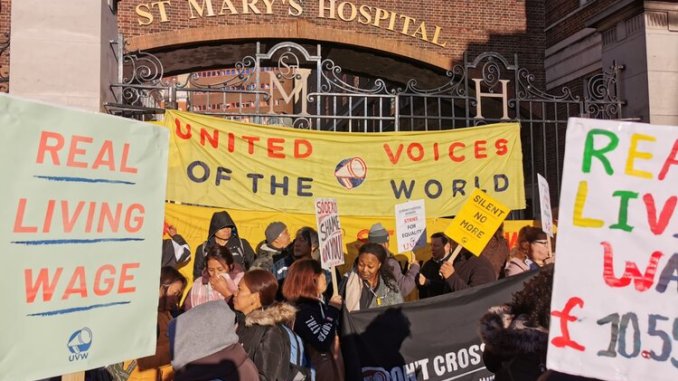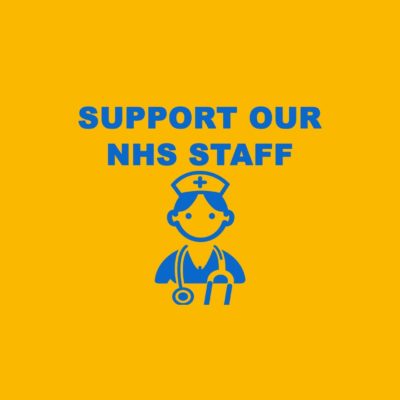
Keep Our NHS Public and Health Campaigns Together wish to add their voice to those pressing the trust Board of Imperial Healthcare to consider the benefits of bringing non-clinical support services in-house rather than seek short-sighted savings through an inferior private provider.
Contracting out services fragments the workforce, and runs counter to the professed NHS ambition of greater integration for safe, efficient and effective services. When ward cleaners have separate employers and managers from nurses and health professionals it prevents the creation of a single team and increases pressures on nursing staff to cover non-nursing roles – with a loss of time and effort for patient care.
Experience with similar contracts for the past 36 years is that private contractors are unattractive as employers, struggle to recruit and retain staff, and tend to operate for prolonged periods on inadequate staffing levels, exploiting loopholes in specifications and the reluctance of trust boards to invoke penalty clauses or terminate contracts.
Indeed a number of longer term contracts have been ended early by trusts as standards of cleaning and other services have declined.
In each case where privatised support service contracts have failed the most serious reputational damage has been to the trusts concerned, and the impact of contract failure has been on the quality of patient care.
Board members are urged to look at the recent track record of similar contracts ending in failure:
In Sussex, a 5-year £15m contract with Sodexo for cleaning, portering and catering ended 3 years early in 2015, with services brought back in house: it was clear the trust and the company had attempted to make unsustainable savings, resulting in what management described as “inconsistencies in standards such as difficulties with maintaining cleaning standards”.
In Leicestershire a much bigger 7-year £300m contract with Interserve to provide catering maintenance and support services to two NHS trusts and NHS Property Services was scrapped four years early, in 2016. Around 2,000 staff were brought back into the NHS, and services are now delivered in-house. Two years later University Hospitals Leicester admitted that cleaning and maintenance required significant additional investment, including an extra £2m in pay for the lowest-paid staff.
Later in 2016 in Nottingham University Hospitals trust the failing contractors Carillion, who later went bankrupt, lost a five year £200m contract for cleaning, catering, laundry, car parking and security after just two years, amid a barrage of complaints over unacceptable standards. 1,500 staff were brought back in house.
Carillion employees in Nottingham complained of being short-staffed and lacking the right equipment to do their jobs properly: the trust argued that Carillion was employing about 70 fewer cleaning staff than required. The BBC reported some nursing staff were doing cleaning tasks themselves because they were not satisfied with the work of Carillion’s staff.
Concerns over quality of service
These examples are far from unique. Ever since the Thatcher government introduced competitive tendering for NHS cleaning, catering and laundry services there has been a continuous criticism that the process puts quality at risk in pursuit of cash savings.
In other words there are literally decades of evidence and experience underlining the hazards of contracting out to private sector companies which all too often show no sense of responsibility to anyone other than their shareholders.
Time and again serious studies have shown that the only benefit from privatisation is the possibility of a cash saving – at the expense of low-paid staff, and at the risk of fragmenting the ward teams which are the front line for the quality of patient care. There is ample evidence that privatisation of non-clinical services weakens any possibility of teamwork and improving morale.
There is a strong case for investment to bring hard-working but in many cases under-rewarded cleaning and catering staff back in-house, and the Trust itself ‘taking back control’ and accepting its responsibility for the improvement of support services.
Treating support staff with respect, and working with them to develop high quality, in-house services can in turn help to create a positive and supportive environment for the crucial task of recruitment, retention and further training of nurses, other professionals and medical staff. It can only assist the Trust in its professed aim of delivering the highest quality patient care in a safe and comfortable environment.
We urge Trust board members to opt for quality rather than cost savings, and bring services in-house.







which NHS hospitals in the UK have contracted services with Sodexo